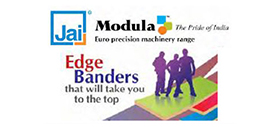Warning: Trying to access array offset on value of type null in /var/www/vhosts/woodnews.in/httpdocs/wiphp/wi_articledetail.php on line 33
Warning: Trying to access array offset on value of type null in /var/www/vhosts/woodnews.in/httpdocs/wiphp/wi_articledetail.php on line 34
Warning: Trying to access array offset on value of type null in /var/www/vhosts/woodnews.in/httpdocs/wiphp/wi_articledetail.php on line 35
Warning: Trying to access array offset on value of type null in /var/www/vhosts/woodnews.in/httpdocs/wiphp/wi_articledetail.php on line 36
Warning: Trying to access array offset on value of type null in /var/www/vhosts/woodnews.in/httpdocs/wiphp/wi_articledetail.php on line 37
Warning: Trying to access array offset on value of type null in /var/www/vhosts/woodnews.in/httpdocs/wiphp/wi_articledetail.php on line 38
Warning: Trying to access array offset on value of type null in /var/www/vhosts/woodnews.in/httpdocs/wiphp/wi_articledetail.php on line 39
Warning: Trying to access array offset on value of type null in /var/www/vhosts/woodnews.in/httpdocs/wiphp/wi_articledetail.php on line 40
Warning: Trying to access array offset on value of type null in /var/www/vhosts/woodnews.in/httpdocs/wiphp/wi_articledetail.php on line 43
Warning: Trying to access array offset on value of type null in /var/www/vhosts/woodnews.in/httpdocs/wiphp/wi_articledetail.php on line 44
No Article Added
Comments

- ‘Red gazelle’ makes window installation easy
- Felder’s solutions for window and door production
- Versatile sliding-folding systems from Hafele
- Door line automation from Woodtech Consultants
- Accutec solutions for uPVC windows
- Jowat’s VOC-free primer for window profile wrapping
- Flexible solutions for doors, windows from SCM
- Tostem introduces Giesta steel doors; calls for dealers
- Folder system by Salice optimises cabinet space
- Turakhia has top-quality veneers for doors
- Mirka has solutions for difficult sanding of doors
- When Lamello’s Cabineo became a game changer
- Digital lacquer embossing for flooring from Hymmen
- Weber sanders help achieve luxury surfaces
- Rehau has designs on growing edge band market
- Samet ties up with Greenply to tap Indian hardware market
- IMA Schelling sets up base in India
- Hettich earns BIS nod for hinges, runners
- Biesse India now a Multi-Material Expert
- The importance of selecting the correct tools
- Indian cabinet maker shines at Lyon WorldSkills
- ‘Collaboration holds the key to success’
- Fibreboard recycling becomes a reality
- MumbaiWood now a recognised destination
- Knock on wood: A bouquet of training courses!
- Ligna 2025: ‘Thinking in circles’
- CIFF-Shanghai focuses on furniture design
- Felder hosts in-house show, Technology Days
- Interzum Forum Italy makes impressive debut
- Koelnmesse ties up for 3-in-1 Jakarta fair
- WOFX: a global hub for innovation and growth
- Events Calendar: industry fairs you must visit
- 3D is printing sustainable housing solutions
- Hard or soft? Researchers discover new wood type
- Master, apprentices take AHEC’s cherry challenge
- ‘Zero-to-launch’ modularity transforming hospitality
- ICA’s Urban Matter is about satin-finish metal effect
- MTC’s ‘Woven timbers’ create waves
- Impact of material in interior design
- Underestimated danger: Sharp edges
- Playing safe on clothing storage units
- ‘Green’, 3D-printed panel floors it!
- Adhesive-free joining of wood, metal
- Energy-efficient manufacturing of fibre-based products
- Rice bran wax: a sustainable alternative
- Dual-side hand sanding block has unique features
- Bio-based products for sustainable development
- ‘Wood Vaulting’ may enhance CO2 sequestration
- Protecting forests through advanced AI
- Forest certification benefits wildlife too!
- Elizure, the Rolls Royce of laminates!
- Rehau unveils new Rauvisio Riviera collection
- Hawa Concepta III: upgrade to seamless functional doors
- Hafele’s RE-Twist locks in on security
- Optimus machines feature tomorrow’s technology today
- Merino unveils cutting-edge offerings
- Ornare launches new premium laminates
- New nesting models from SCM
- Advanced moulder, membrane press from Woodtech
- Greenlam Laminates unveils exclusive display centre in Pune
- EUDR implementation dates may be deferred
- Herman Miller introduces bamboo upholstery
- Altendorf named ‘Brand of the Century’
- Catas to verify its test reports
- Combilift wins two prestigious awards
- Holz-Her management transition
- Replica of the Oval Office opens
- Ozone Blu sets up experience centre
- SCM opens new subsidiary in Slovenia
- VDMA faces business stagnation
- RentoMojo reports strong growth in FY24
- Century Plyboards on expansion mode
- Subhra named DG of FSC
- Meta to assist Skill India Mission
- Sugatsune opens Bengaluru experience centre
- Dieffenbacher acquires Pagnoni
- Pepperfry partners with Infra.Market
- Hafele opens light store in Chandigarh








































